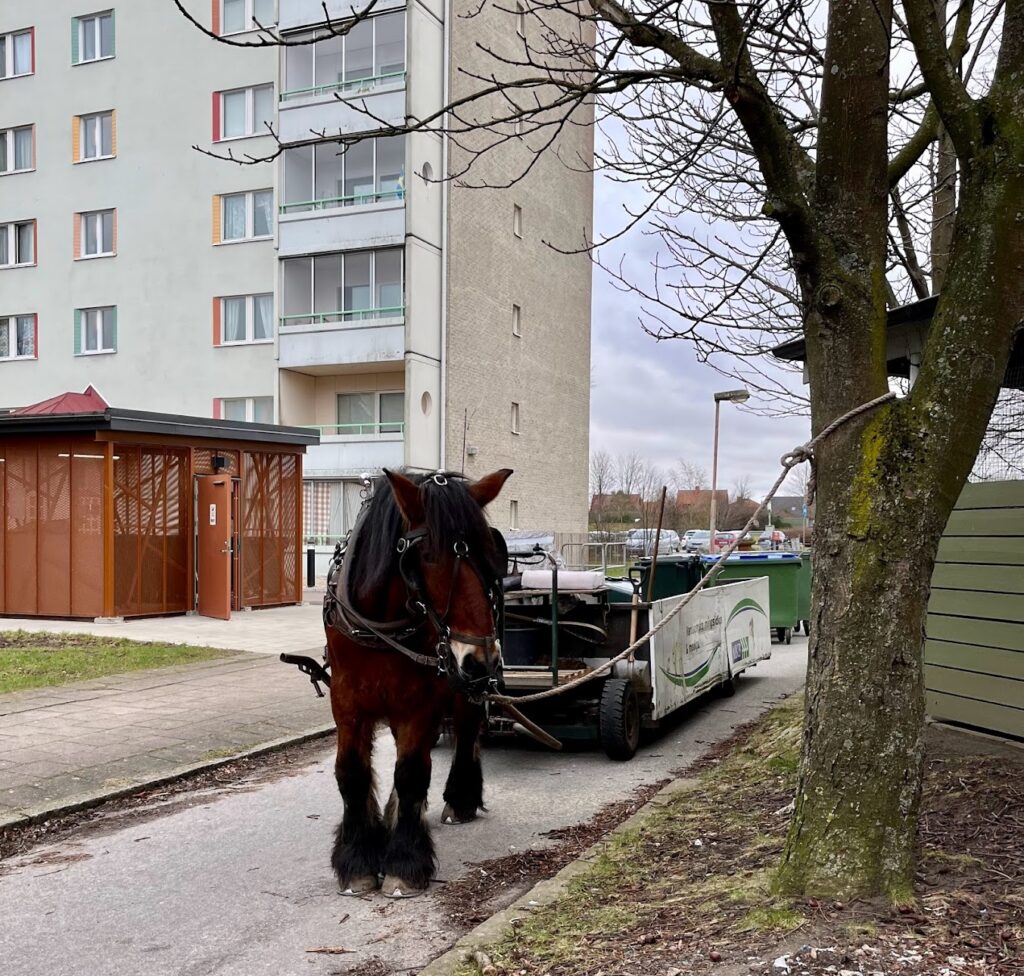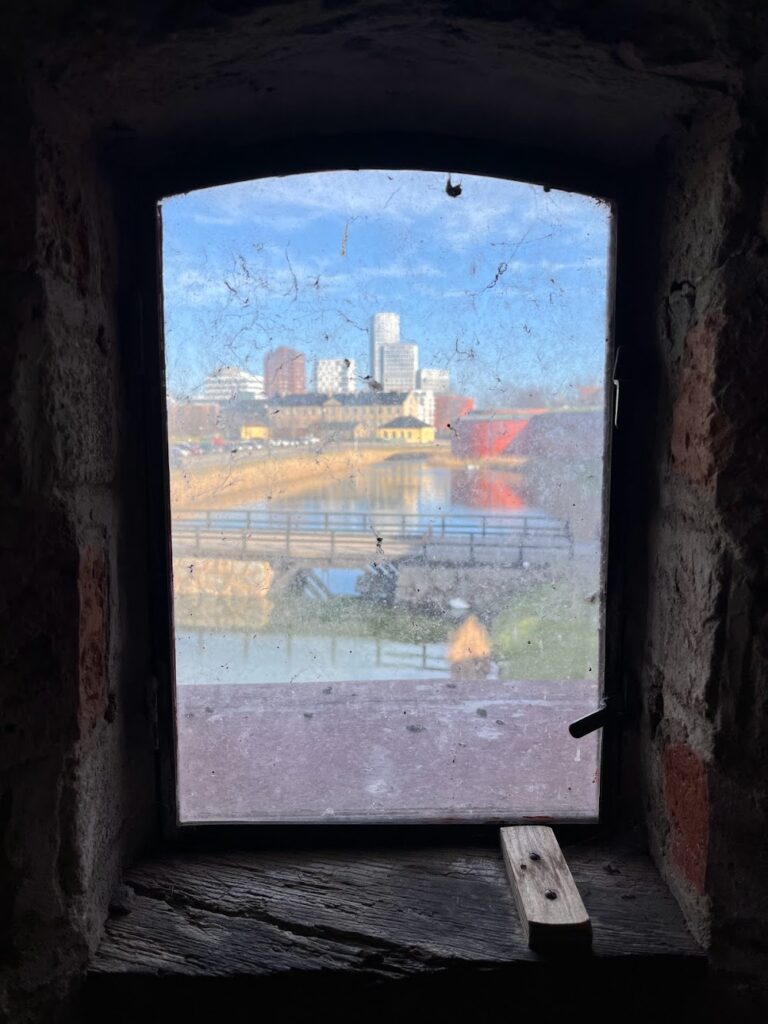This Week’s Bit of String: A blue dress in an empty village
We take somewhat unconventional holidays. They’re often centred around seeing family, since no one lives near us, or else we’ll make it to another city or even country but only find affordable accommodation in the outskirts. Most recently, we combined both these by visiting Malmo, Sweden, where our son had travelled from the US for a gaming event.
We stayed in a hotel a few miles south of the lovely old town and castle. When we hiked there, or to the sea, we passed apartment blocks. Some older, used by immigrant communities, with Ukrainian flags or halal pizzerias. Some with separate car parking space and bike lockup for each flat. We passed allotments for veggie gardens, quadrants of circles carved out of parkland. There was a whole, mid-city village of “summer houses,” too: painted huts with little shared gardens, hammocks, berry bushes, barbecue grills, all vacant for now. Some had small glassed-in porches; I saw a pretty, short-sleeved blue dress hanging in one. Waiting for a party?

It might be nice to stay in luxurious resorts or in city centres where you can just step out and go to the theatre or something. But I maintain that no vacation is complete without a day when you’ve walked at least ten miles, and seeing a dress in an empty summer house window or passing a preschool blasting out Moana while rosy-cheeked, blond kids in full snowsuits sniffle and shove at each other are every bit as fascinating to me as a museum or a palace.
Checking Out the History
Not to say that I don’t enjoy cathedrals and castles and all that. They’re intriguing glimpses into history, and more and more they try to reflect the wider experiences of citizens. We visited Malmo Castle, and learned about the strife between Denmark and Sweden in the 17th century, reading about the people caught up in it, military and civilian, from both sides. There was also a very creepy recreation of a plague town from the early 1700s, complete with sound effects of children whimpering, because some people believed if you buried a child alive, the whole village would be saved from disease.
And there were horrific tales of torture and execution from the 1800s when the place served as a prison. There was an outline on the floor where a boy would have been beheaded, and child executions trigger me worst of all. Such a horrific lack of empathy.
On a slightly more hopeful note, the building later served as a shelter for refugees after World War II, and we saw one of the Swedish “white buses” which rescued thousands of people from concentration camps before the war ended, made possible by an agreement with Himmler—behind Hitler’s back.
I think travel, even when it’s not glamorous, serves to remind us of stories happening all around, at every echelon of society. It pricks my curiosity for how others live their lives, whether in a castle or in a high-rise apartment.
The Everyday Moments
The ordinary is worth noticing, not just in the places we visit, but in moments we spend with each other. While abroad, we ate most of our dinners at the shopping centre across from our hotel, treating our kiddo as well. In turn, we were given guest passes to the event so we could watch the game our Bear was streaming. It was a fun setup—arcade games, swinging chairs, soft serve ice cream. We cheered and readily made fools of ourselves as fans.

Later on, other gamers recognised my husband and I, saying how great that we’d come. It made me wonder, don’t their parents at least tune in virtually for their events? But a lot of people dismiss videogaming. I’ve never had time (or coordination, if I’m being honest) to do it myself, but I always tried my best to listen to the play-by-play accounts from my kid, so I could share in the successes and frustrations of one of my very favourite people. And look where it got Bear, having a blast in a city overseas, a break from the day job. It saddens me thinking how lonely some gamers must be at their families’ indifference, and how much their parents miss out. If people can’t summon the will to listen to their own kids’ interests, what hope for human empathy is there?
Now that I am separated from my child, living on opposite sides of the Atlantic, I miss quick conversations after work, the opportunity to provide a cup of tea or sandwich or cookie and be repaid with a smile and cuddle. I miss Bear popping down while I’m cooking or washing up. They would stand with one foot propped up behind the other knee like a stork, telling me about this or that game, how they might arrange the music, which gamer friend runs it, what time they hope to achieve speed running.
C.S. Lewis, in his memoir A Grief Observed, mentioned how he missed the “heartbreaking commonplace,” and that line has always stuck with me. The ordinary is so important. It’s the stuff we learn from, long for, and it’s vital for empathy, because when we talk about walking a mile in someone’s shoes, we don’t just mean their Sunday best.
Have you gained insight into people’s everyday lives from travel? Has it been useful for your writing or art?